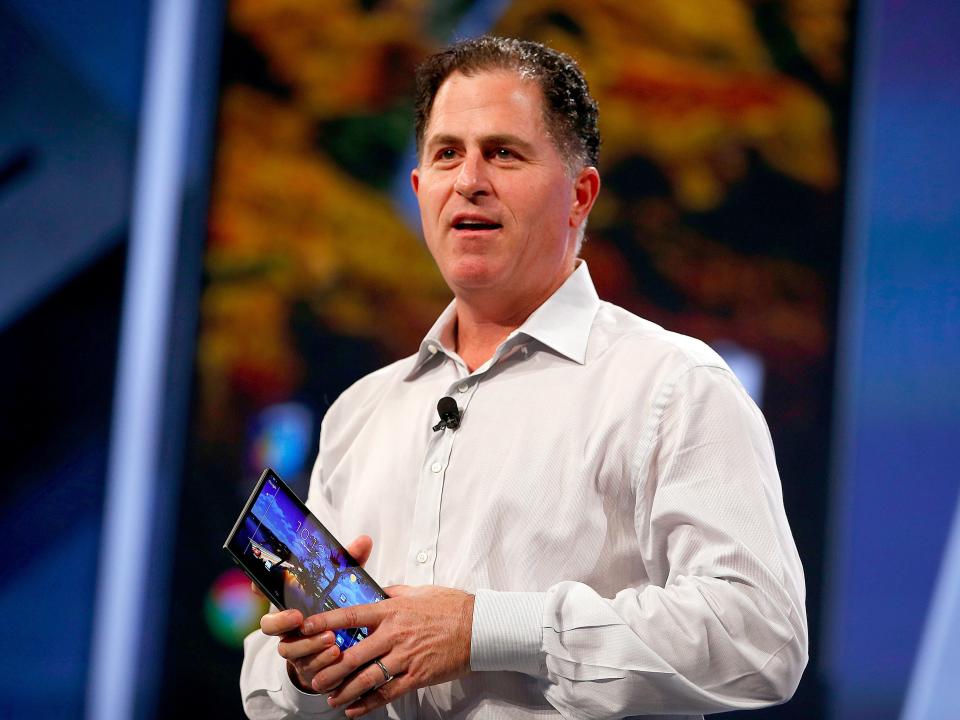Dell is taking on a mammoth $50 billion in debt – and Wall Street is OK with that

Tony Avelar/AP Images for Dell Inc. Michael Dell, founder and CEO of Dell Inc., speaks about the new Dell Venue 8 7000 series tablet at the Intel Developer’s Forum 2014 on Tuesday, Sept. 9, 2014 in San Francisco. Dell is taking on an eye-popping $50 billion in debt to acquire EMC.
According to ratings agency Moody’s, that could be a good thing.
Moody’s credit rating arm placed about $11.5 billion in rated Dell debt on review for an upgrade following the deal’s announcement.
It said: “Despite the significant increase in debt and initial leverage, Dell’s overall credit profile will be enhanced with the acquisition of EMC, a merger that will create the largest private technology company in the world based on revenues.”
That comes after a February upgrade where Moody’s noted that since the take-private of Dell in 2013, virtually all of the company’s free cash flow has been used to pay down debt.
Among the factors driving Moody’s optimism are the company’s global market share in PCs, servers and data storage.
A separate note from S&P also made mention of the benefits of the deal.
“The acquisition of EMC strengthens Dell’s existing product portfolio to include market leadership positions in PC, servers, storage, and virtualization software, enhances Dell’s position as a critical IT business partner with its customers and supply chain partners, improves the company’s profitability profile as a result of better product mix, and also enables the opportunities for revenue and cost synergies.”
It struck a more cautious tone on the impact of the transaction on the company’s financial position, however.
S&P credit analyst David Tsui said: “The transaction will weaken the company’s financial risk profile due to higher debt leverage.”
The chief executive of one of Dell’s rivals, the brand new Hewlett Packard Enterprise (HPE) company that will come into existence on November 1 when HP splits itself into two companies, highlighted some of the downsides to the deal in a memo to staff.
Meg Whitman, CEO of HP who will become CEO of the new HPE, said in the memo: “To pay back the interest on the $50 billion of debt that the new combined company will have on their balance sheet, Dell will need to pay roughly $2.5 billion a year in interest alone. That’s $2.5 billion that they will allocate away from R&D and other business critical activities.”
NOW WATCH: This is the Excel trick that will change everything about how you work with data
The post Dell is taking on a mammoth $50 billion in debt – and Wall Street is OK with that appeared first on Business Insider.

 Yahoo Finance
Yahoo Finance 
